The views expressed in our content reflect individual perspectives and do not represent the authoritative views of the Baha'i Faith.
Devoted, loving fathers can provide a stabilizing force, offering encouragement, protection, education, support, kindness and attention, along with being examples and mentors. What if we all had an exemplary father like that?
RELATED: Who Is Abdul-Baha and Why Is His Station Significant?
The Baha’i teachings offer us one – Abdu’l-Baha, the son and successor of Baha’u’llah, the prophet and founder of the Baha’i Faith. While not a prophet of God himself, Abdu’l-Baha nevertheless occupies a singular station for Baha’is, as explained here by the Universal House of Justice in their introduction to Baha’u’llah’s “Most Holy Book:”
This unique figure is at once the Exemplar of the pattern of life taught by His Father, the divinely inspired authoritative Interpreter of His Teachings and the Centre and Pivot of the Covenant which the Author of the Baha’i Revelation made with all who recognize Him.
The Baha’i Faith asks its followers to become citizens of the world, recognizing and acting on the consciousness of the oneness of humanity and offering love and compassion to all people. Abdu’l-Baha excelled in his role as the exemplar of these lofty spiritual teachings, as the personal accounts of those who met him clearly indicate.
Wellesca (“Aseyeh”) Allen-Dyar, who became a Baha’i in 1901 and made her pilgrimage to Akka six years later, described how Abdu’l-Baha:
“… was able to be to us a loving father, a companion and friend, and we could enjoy ourselves socially because we did not continually keep Him answering questions, at which time He would at once assume a different attitude and … one would feel His Kingship, His Greatness, the unlimited depths of His Wisdom. He is indeed as a “well of living water springing up into everlasting life,” and knowledge and wisdom come from His lips as does water from a fountain, giving life to every thirsty heart ….”
Myron Phelps, a New York attorney and writer, travelled to Akka in 1902 and described how Abdu’l-Baha, known by many as “the Master,” related to others there:
“All the people know him and love him – the rich and the poor, the young and the old – even the babe leaping in its mother’s arms. If he hears of any one sick in the city – Muslim or Christian, or of any other sect, it matters not – he is each day at their bedside, or sends a trusty messenger. If a physician is needed, and the patient poor, he brings or sends one, and also the necessary medicine. If he finds a leaking roof or a broken window menacing health, he summons a workman, and waits himself to see the breach repaired. If any one is in trouble – if a son or a brother is thrown into prison, or he is threatened at law, or falls into any difficulty too heavy for him – it is to the Master that he straightway makes appeal for counsel or for aid. Indeed, for counsel all come to him, rich as well as poor. He is the kind father of all people ….”
Juliet Thompson, an American painter, became a Baha’i during a stay in Paris in 1901. She met Abdu’l-Baha in 1909 in the Holy Land and later saw him in Europe and America. She wrote:
“He gives – gives – gives! His love seems never content with giving. Tirelessly he gives of his spirit and heart – like a tender father he gives of material things – little keepsakes, or, in lovely symbol, flowers.”
She also described how Lee McClung, then Treasurer of the United States, after his meeting with the Master and groping for words to describe it, had said: “I felt as if I were in the presence of a great Prophet – Isaiah – Elijah – no, that is not it. The presence of Christ – no. I felt as if I were in the presence of my Divine Father.”
Jean LeFranc, a French journalist for Le Temps, met Abdu’l-Baha in Paris and then wrote:
“The venerable face of Abdu’l-Baha, in which his young eyes sparkle, beams with intelligence and kindness. He is fatherly, affectionate, simple; he inspires trust and respect. His divine power comes no doubt from knowing how to love people and to be loved by them.”
Lady Blomfield, an early British Baha’i, hosted Abdu’l-Baha during his visits to London. In this account, she described an event that occurred in Paris:
“A very poor quarter in Paris – Sunday morning – groups of men and women inclined to be rowdy. Foremost amongst them a big man brandishing a long loaf of bread in his hand, shouting, gesticulating, dancing. Into this throng walked Abdu’l-Baha, on his way from a Mission Hall where he had been addressing a very poor congregation at the invitation of their Pastor. The boisterous man with the loaf, suddenly seeing him, stood still. He then proceeded … crying ‘Make way, make way! He is my Father, make way.’ The Master passed through the midst of the crowd, now become silent and respectfully saluting him. ‘Thank you, my dear friends, thank you’, he said smiling round upon them. The poor were always his especially beloved friends. He was never happier than when surrounded by them, the lowly of heart!”
Frederick Dean, a Buddhist and journalist who met Abdu’l-Baha on several occasions in New York City, was a reporter for “The Independent” and “The Weekly Review” assigned to report on a church event at which Abdu’l-Baha spoke:
“I first met the teacher in an up-town church. I had been sent by my paper to report the sermon. The speaker’s likeness to my own father was so startling, that, immediately after the service, I entered the anteroom and told him of the remarkable resemblance. Very quietly he answered: ‘I am your father and you are my son. Come and dine with me.’ Another engagement prevented, but I asked if I might take breakfast with him the following morning. ‘Come.’ He said. I went, and after that first meeting followed others. We walked in his garden, and, as we walked, we talked. I told him of his peculiar attraction to me on account of my own outlook on life; that I came from Southern Asia and that I was a Buddhist – a Buddhist-Christian. ‘So am I,’ replied the teacher. ‘I am also a Confucian-Christian and a Brahmin-Christian; a Jewish and a Mohammedan-Christian. I am a brother to all who love truth – truth in whatsoever garb they choose to clothe it.’ …
“On the last day that I saw him he gave me his rose – he always had a freshly picked rose on his table …. As he left me at the door he said, ‘… Think of me as your loving father and not as some divine thing to be adored.’… Those who met him carried away a nameless something that made life’s pleasures brighter.”
John E. Esslemont, a Scottish physician, met the Master in Haifa in November 1919 and spent two and half months as his guest. He related how, though nearly seventy-six years of age, Abdu’l-Baha was still “remarkably vigorous:”
“His services were always at the disposal of those who needed them most. His unfailing patience, gentleness, kindliness and tact made His presence like a benediction. It was His custom to spend a large part of each night in prayer and meditation. From early morning until evening, except for a short siesta after lunch, He was busily engaged in reading and answering letters … and in attending to the multitudinous affairs of the household ….
“In the afternoon He usually had a little relaxation in the form of a walk or a drive, but even then He was usually accompanied by one or two, or a party … with whom He would converse … or He would find opportunity … of seeing and ministering to some of the poor. After His return He would call the friends to the usual evening meeting …. He delighted in gathering together people of various races, colors, nations and religions in unity and cordial friendship around His hospitable board. He was indeed a loving father not only to the little community at Haifa, but to the Baha’i community throughout the world.”
During Abdu’l-Baha’s trip to the United States and Canada in 1912, he stopped in Salt Lake City on his journey westward. Feny Paulson, from Montana, came to meet him at the station. The next day, Abdu’l-Baha went to the State Fair, where he purchased seeds to take back to the Holy Land. Paulson describes him at the State Fair as a “flowing-robed figure … with majestic bearing” followed by his oriental companions. The next morning, she left her modest accommodations at the YWCA to have tea with him at his hotel. She wrote:
“The Master served tea, saying This is the Lord’s Supper you are having with Me. He also said, I am your Father. That was to take the place of the father I had never remembered, and whom I had so often tried to recall. He gave me a locket-sized likeness of Himself as a father gives a treasure to one of His children. … Although the details of each person in the presence of Abdu’l-Baha are different, they are the means to the same end – spiritual progress. Incidents forgotten and hidden in the recesses of one’s being, in His presence, are in a flash perceived and unobtrusively aired. … problems and burdens … become non-essentials in the light of His divine love. … Abdu’l-Baha was the Supreme Psychiatrist.”
RELATED: Abdu’l-Baha’s Relationship to His Father, Baha’u’llah
Thornton Chase, considered the first American Baha’i, met Abdu’l-Baha during his pilgrimage to Akka in 1907. When Abdu’l-Baha went to California in 1912, Chase died before he arrived. But Abdu’l-Baha made a special visit to his grave. Chase had written this about the Master:
“I found in Abdul-Baha a man, strong, powerful … as free and unstilted as a father with his family or a boy with playmates. Yet each movement, his walk, his greeting, his sitting down and rising up were eloquent of power, full of dignity, freedom and ability. …”
“Abdul-Baha is a grand man, broad, universal in thought, standing above the world and looking down upon it in its weakness and poverty with a boundless love and an intense longing to lift it up from its wretchedness, to make it conscious of the rich bounties of God, which are so freely offered in this wonderful time, to remove the differences to bring all men, all peoples, all religions into true manhood and religion …. He stands there erect, with extended arms, the Master of the Feast, calling with a loud, clear voice to all mankind: ‘Come! Come! Come! Now is the time! Now is the accepted time! Come and drink of this sweet Water which is pouring in torrents upon all parts of the world!’
“And, as each hungry pilgrim comes … he takes him in his arms and draws him to his breast with such sincerity and enthusiasm of love that the petty cares, thoughts and ambitions of the world vanish away, and one is at peace and in happiness because he has reached home and found love there … One wishes that the embrace might not end, it is so joyful, so comforting. Truly, I think it never does end. It opens a door of love which shall never be closed. The home of the heart is there.”
Sheikh Younis el-Khatib was a renowned Muslim poet and orator who spoke at Abdu’l-Baha’s funeral and at the memorial meeting held 40 days after his passing:
“Alas! In this tribulation there is no heart but aches with anguish, no eye but is filled with tears. Woe unto the poor, for lo! goodness hath departed from them, woe unto the orphans, for their loving father is no more with them! … Suffice it to say, that he has left in every heart the most profound impression, on every tongue most wondrous praise. And he that leaveth a memory so lovely, so imperishable, he, indeed, is not dead.”
Mysteriously, Abdu’l-Baha’s presence in the world still seems quite tangible – he is someone we can all relate to, and he promised that he would always be with us. In fact, he said something rather astonishing: “If the believers … establish, in a befitting manner, union and harmony with spirit, tongue, heart, and body, suddenly they shall find Abdu’l-Baha in their midst.”
In this spirit, we can all claim Abdu’l-Baha as a kind of universal father figure – always there, always willing to lift us up, always calling us to a higher spiritual plane.
[Note: Several of the accounts shared here are from a new compilation by Robert Weinberg, Ambassador to Humanity: A Selection of Testimonials and Tributes to Abdu’l-Baha.]
You May Also Like
Comments



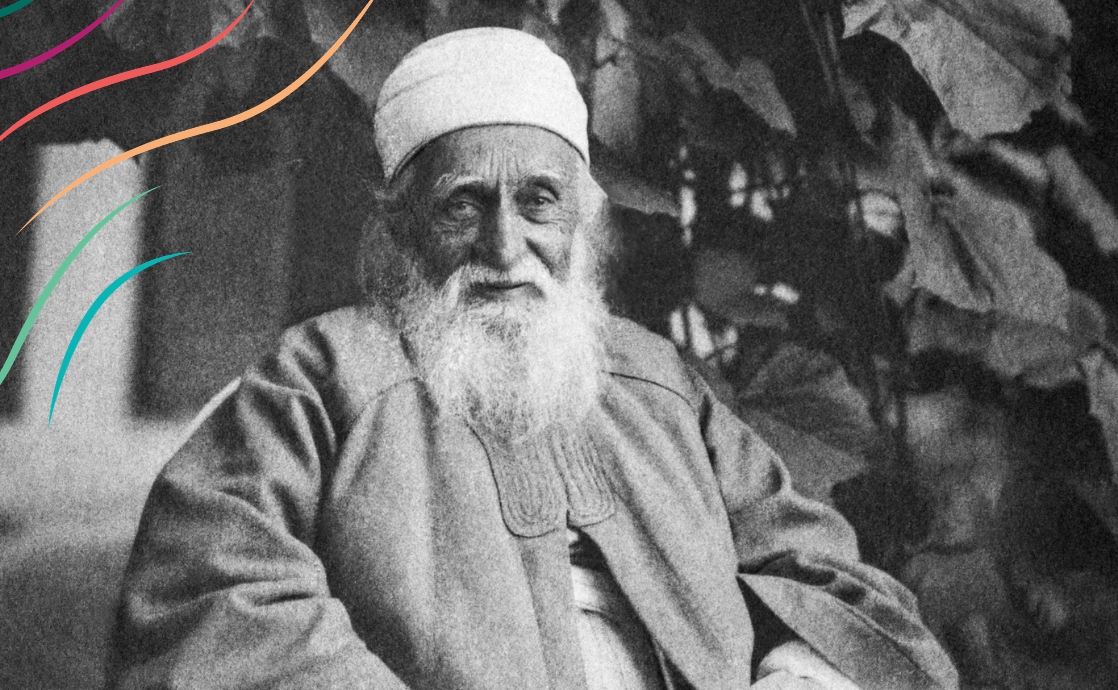
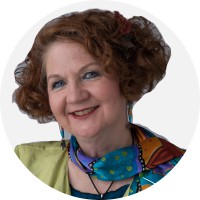
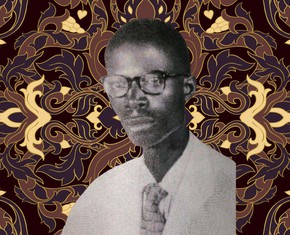
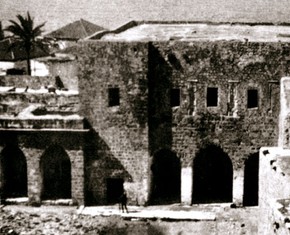
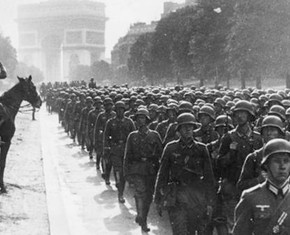









Michelle